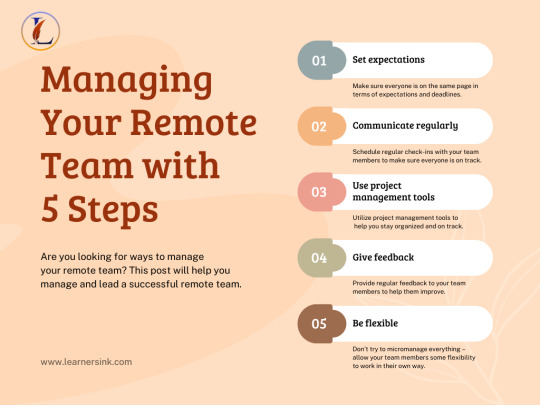#RemoteWorkStrategies
Text
The Green Revolution: Sustainable Practices in Modern Supply Chain Management
In an era where environmental consciousness is on the rise, the business landscape is undergoing a transformative shift towards sustainability. Nowhere is this shift more evident than in supply chain management, where companies are recognizing the importance of adopting eco-friendly practices to reduce their environmental footprint. This blog post delves into the growing significance of sustainability in supply chain management, exploring how businesses are embracing green initiatives and aligning profitability with responsible environmental stewardship.
1. Sustainable Sourcing: From Farm to Factory
Sustainable sourcing involves reevaluating every step of the supply chain, starting with raw materials. Companies are increasingly opting for responsibly sourced materials, prioritizing suppliers that adhere to ethical and environmental standards. This shift not only minimizes the ecological impact of production but also ensures fair treatment of workers in the supply chain.
2. Ethical Manufacturing: Putting People and the Planet First
Ethical manufacturing practices prioritize the well-being of both workers and the environment. From fair wages to safe working conditions, companies are emphasizing ethical considerations in manufacturing processes. Additionally, reducing energy consumption and waste in production facilities contributes to a more sustainable and socially responsible supply chain.
3. Green Logistics: Navigating the Eco-Friendly Route
Logistics play a pivotal role in supply chain sustainability. Companies are optimizing transportation routes, investing in fuel-efficient vehicles, and exploring alternative transportation methods, such as electric vehicles and eco-friendly packaging. Green logistics not only reduces carbon emissions but also contributes to cost savings.
4. Circular Supply Chains: Closing the Loop on Waste
The concept of a circular economy is gaining traction, emphasizing the importance of reducing, reusing, and recycling materials. Businesses are exploring ways to minimize waste throughout the supply chain, from the design phase to the end-of-life of products. Circular supply chains not only contribute to environmental conservation but also present opportunities for cost savings through resource efficiency.
5. Brand Reputation: The Impact of Going Green
Consumers are increasingly making purchasing decisions based on a company's commitment to sustainability. Adopting green practices in the supply chain enhances a brand's reputation, attracting environmentally conscious consumers. Positive brand perception not only strengthens customer loyalty but also sets the stage for long-term business success.
6. Regulatory Compliance: Navigating the Green Landscape
Governments and international bodies are introducing stringent environmental regulations, compelling companies to adopt sustainable practices. Staying ahead of regulatory requirements not only ensures compliance but also positions businesses as responsible corporate citizens.
7. Technology as an Enabler: Innovations for a Greener Tomorrow
Technology plays a crucial role in implementing sustainable practices. From data analytics for supply chain optimization to blockchain for transparent and traceable sourcing, technological innovations empower companies to make informed decisions that align with environmental objectives.
8. Collaboration for a Sustainable Future
Achieving a truly sustainable supply chain requires collaboration across industries. Companies are forming partnerships and collaborations to share best practices, collectively address environmental challenges, and drive systemic change towards sustainability.
In conclusion, the green revolution in supply chain management is not just a trend but a necessity for businesses aiming for long-term success. By embracing sustainable practices, companies can reduce their environmental impact, build a positive brand image, and contribute to a more eco-friendly future. The integration of green initiatives into supply chain management is not just a responsibility; it's an opportunity for businesses to thrive in a world where sustainability is at the forefront of consumer and regulatory expectations.
#SustainableSupplyChain#GreenLogistics#EthicalManufacturing#CircularEconomy#SupplyChainManagement#EcoFriendlyPractices#BusinessSustainability#EnvironmentalStewardship#GreenRevolution#CrossFunctionalCollaboration#RemoteWorkStrategies#VirtualCollaboration#RemoteTeamManagement#AIinBusinessOperations#ArtificialIntelligence#Innovation#FutureOfWork#CorporateResponsibility#BrandReputation#RegulatoryCompliance#TechnologyInSupplyChain#CollaborationForSustainability
0 notes
Text
youtube
#TwinDads#WorkingRemotely#WorkLifeBalance#ParentingChallenges#AttentionManagement#ProductivityTips#RemoteWorkStrategies#Youtube
0 notes
Text

Embrace the future of work! 🌐💼✨ Discover the art of managing your remote team.
Read more >>
#RemoteTeamManagement#RemoteWork#VirtualTeam#RemoteCollaboration#WorkFromAnywhere#DigitalNomadLife#RemoteLeadership#TeamworkMakesTheDreamWork#RemoteProductivity#RemoteSuccess#FlexibleWork#GlobalWorkforce#RemoteCommunication#RemoteCulture#RemoteChallenges#RemoteEmpowerment#RemoteTeamBuilding#RemoteWorkLife#RemoteWorkTips#RemoteWorkStrategy#pmp certification
0 notes
Text
Every company needs a #RemoteWorkStrategy to survive
Remote work is the most important workplace innovation in history. It will deliver the largest quality of life increase across the next decade and help companies become far more effective and efficient. Failing to adapt could destroy them
Current events have highlighted this and accelerated the need for companies to have a remote work strategy immediately. Companies without one right now are…
View On WordPress
0 notes